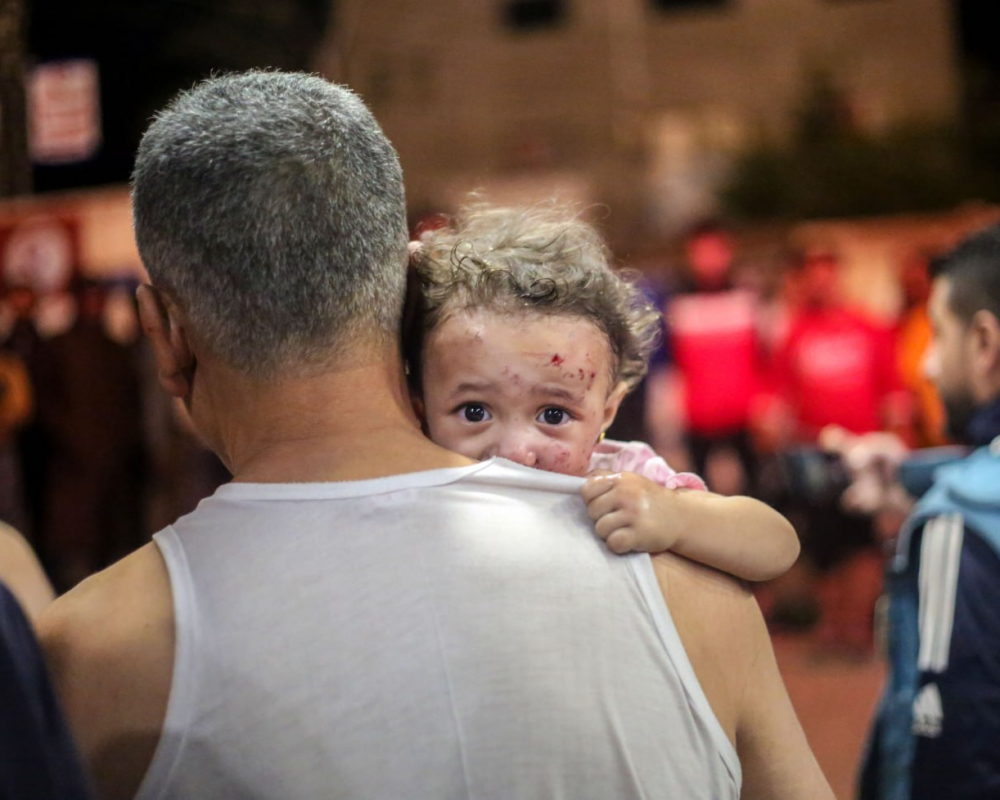
Gaza / PNN /
The relentless bombardment by Israeli forces from air, sea, and land continues, exacerbating the dire situation in the Gaza Strip.
Despite directives for Gazans to relocate to the south, Israeli Air Forces persisted in striking areas like Khan Yunis and other southern regions.
Water scarcity has reached a critical point, posing an imminent threat to lives. The collapse of water and sanitation services, including the shutdown of Gaza’s last operating seawater desalination plant today, has raised concerns of dehydration and waterborne diseases.
Today, a limited three-hour water supply was made available in the southern part of Gaza, serving only half of Khan Yunis' population, roughly 100,000 people. However, this falls woefully short of the urgent water needs in other parts of Khan Yunis, the Middle Area, and Rafah, benefiting only 14 percent of the Strip's populace.
Gaza requires 600,000 liters of fuel daily to operate water and desalinization plants. On October 16, UNRWA allocated some of its scant fuel supplies, but the reserves in all hospitals are projected to last only an additional 24 hours. The potential shutdown of backup generators jeopardizes the lives of thousands of patients.
Tragically, in the nine days of conflict, the Palestinian Ministry of Health reports 2,670 Palestinians killed in Gaza—an average of 267 per day or 11 every hour—while 9,600 are injured. In Israel, 1,300 people lost their lives, with at least 4,121 reported injuries.
Heartbreakingly, 14 UNRWA staff members have fallen victim to the conflict since October 7, a number likely to be higher. Additionally, 24 confirmed UNRWA installations have been impacted across the Gaza Strip due to airstrikes and bombardment.
Estimates indicate that one million people have been displaced within the Gaza Strip, with nearly 400,000 seeking refuge in UNRWA facilities, particularly in the Middle Area, Khan Yunis, and Rafah. UNRWA's Rafah Logistics Base now accommodates nearly 8,000 individuals, with tensions soaring.
Despite evacuation orders, an unknown number of internally displaced persons remain in UNRWA schools in the north. UNRWA can no longer provide assistance or protection in these areas and lacks critical information about their needs and conditions.
UNRWA is operating eight Primary Health Clinics in the middle and southern areas. However, an impending shortage of medicines looms in the coming month, intensifying the crisis.
UNRWA and the UN are vigorously advocating for the unhindered entry of critical humanitarian supplies into the Gaza Strip to address this mounting crisis.
In the West Bank, severe access and movement restrictions persist, accompanied by escalating settler violence. Since October 7, OCHA reports 58 Palestinians killed and 1,176 injured.
UNRWA, the United Nations Relief and Works Agency for Palestine Refugees in the Near East, was established by the United Nations General Assembly in 1949 to provide humanitarian aid and protection to registered Palestine refugees in the Agency’s operational areas, pending a lasting solution to their plight.
UNRWA operates in the West Bank, including East Jerusalem, the Gaza Strip, Jordan, Lebanon, and Syria.
Tens of thousands of Palestine refugees, displaced due to the 1948 conflict, continue to seek support and assistance nearly 75 years later.
UNRWA strives to empower Palestine refugees through quality education, healthcare, relief, and social services, infrastructure improvements, microfinance, and emergency aid. The agency relies heavily on voluntary contributions for its funding.